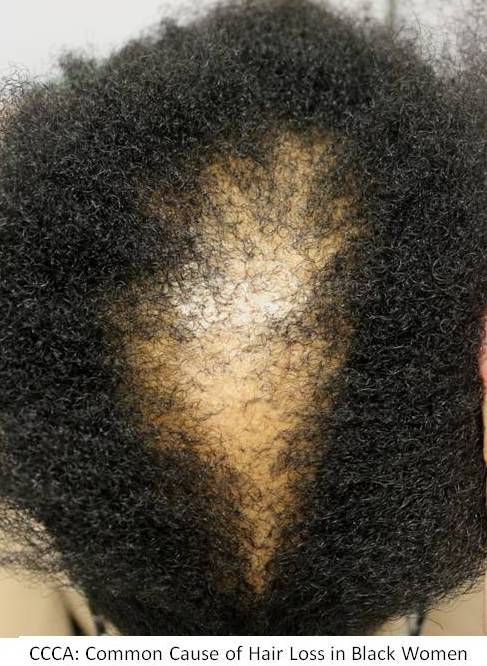Hair Loss in Black Women: CCCA
Hair Loss in Black Women: CCCA
Central Centrifugal Ccatricial Alopecia (or 'CCCA' for short) is a common cause of hair loss in black women. Some estimates suggest that up to 30% of black women have CCCA. Unfortunately, the condition is very much underrecognized and underdiagnosed. Too often women with CCCA are misdiagnosed as having genetic hair loss - both conditions lead to hair loss in the central scalp.
CCCA causes permanent hair loss in the central scalp. Individuals affected by the condition sometimes have scalp itching, burning or pain but very often have no symptoms. This make it difficult to catch the diagnosis in early stages. Hair loss gets worse over time. The cause is not known at present although hair styling practices and the use of of chemicals and relaxers continue to be explored as causes.
How can we improve our ability to diagnose CCCA?
CCCA is underrecognized in the medical community and underdiagnosed. How can we train more physicians to recognize this common condition? Certainly training others to recognize this condition is the first step. There is a suprisingly easy rule I teach doctors who work with me in my clinics:
Any black women with hair loss in the middle of the scalp needs evaluation (& possibly scalp biopsy) to rule out the diagnosis of CCCA.
Hair loss from CCCA is permanent. In most cases regrowth is not possible. Treatments help stop further hair loss but are not always 100 % effective. Treatment for CCCA includes topical steroid medications and steroid injections. Oral medications including tetracycline based antiinflammatory drugs can also be used. Hair transplantation can be successfully used to restore hair density once the condition becomes quiet.
This article was written by Dr. Jeff Donovan, a Canadian and US board certified dermatologist specializing exclusively in hair loss.

